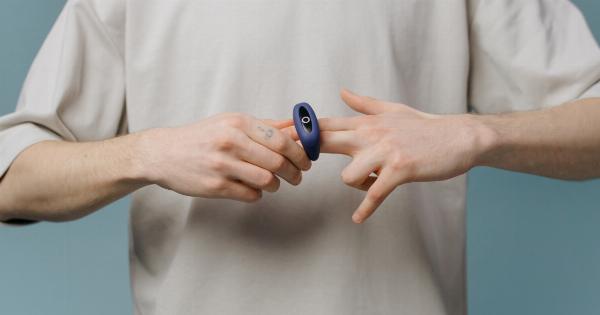Premature Ejaculation (PE) is a common sexual problem, affecting many men around the world. However, there are several misconceptions about PE that can cause confusion and misunderstandings.
In this article, we will discuss some common misconceptions about PE, and provide accurate information to dispel these myths.
Myth #1: Premature Ejaculation is not a real medical condition
Fact: Premature Ejaculation is a real medical condition that affects millions of men around the world. It is a condition in which a man ejaculates sooner than he or his partner would like, causing dissatisfaction and distress.
PE can be caused by physical or psychological factors, and can be treated with medication, therapy, or a combination of both.
Myth #2: Premature Ejaculation is a sign of weakness or lack of masculinity
Fact: Premature Ejaculation is not a sign of weakness or lack of masculinity. It is a medical condition that can affect any man, regardless of his age, physical fitness, or sexual experience.
It is important to seek medical help if you are experiencing PE, as it can have a negative impact on your sexual confidence and relationships.
Myth #3: Premature Ejaculation is a rare condition
Fact: Premature Ejaculation is a common sexual problem, affecting up to 30% of men at some point in their lives. It can be a temporary or persistent problem, and can occur in men of all ages and backgrounds.
It can also be caused by a variety of factors, including anxiety, stress, relationship problems, and medical conditions.
Myth #4: Premature Ejaculation is always caused by psychological factors
Fact: While psychological factors such as anxiety and stress can contribute to Premature Ejaculation, it can also be caused by physical factors such as hormonal imbalances, nerve damage, and prostate problems.
In some cases, it may be a combination of both psychological and physical factors.
Myth #5: Premature Ejaculation can be cured by simply trying to think about something else
Fact: While distraction techniques such as thinking about something else or using a desensitizing spray can help delay ejaculation, they do not cure Premature Ejaculation.
PE is a medical condition that requires proper diagnosis and treatment by a healthcare professional. Treatment options may include medication, therapy, or a combination of both, depending on the underlying causes of the problem.
Myth #6: Premature Ejaculation only affects men
Fact: Premature Ejaculation can affect both men and their partners. It can cause dissatisfaction and distress for both partners, and can impact the quality of their sexual relationship.
Partners may also feel guilty or responsible for the problem, and may avoid sexual intimacy because of it.
Myth #7: Premature Ejaculation is a problem that can only be treated with medication
Fact: While medication can be an effective treatment option for Premature Ejaculation, it is not the only treatment option. Therapy and counseling can also be effective, especially if the problem is caused by psychological factors.
Couples counseling can also help address relationship problems and improve communication between partners.
Myth #8: Men with Premature Ejaculation cannot enjoy sex
Fact: Men with Premature Ejaculation can enjoy sex, but they may need to find ways to manage their condition in order to prolong their sexual encounters and increase their satisfaction.
Treatment options can help improve sexual performance, and partners can also play a role in helping their partners manage and cope with the problem.
Myth #9: Premature Ejaculation is a problem that only young men experience
Fact: Premature Ejaculation can occur in men of all ages, although it is more common in younger men. In older men, it may be caused by medical conditions such as prostate problems or low testosterone levels.
However, it is important to note that Premature Ejaculation is not a normal part of aging, and should be treated if it is causing distress or dissatisfaction.
Myth #10: Premature Ejaculation cannot be prevented
Fact: While it may not be possible to prevent Premature Ejaculation completely, there are several lifestyle changes that can help reduce the risk of developing the problem.
These include reducing stress and anxiety, maintaining a healthy weight, exercising regularly, and avoiding alcohol and drugs. Additionally, practicing techniques such as the stop-start method or the squeeze technique can help improve sexual control and delay ejaculation.






























